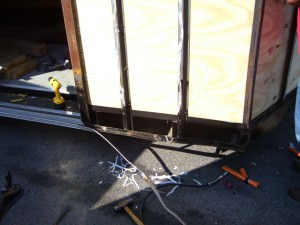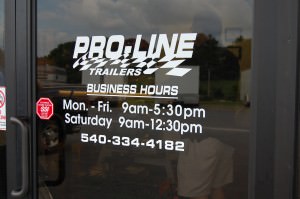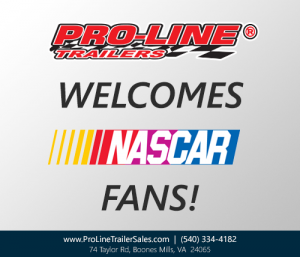A Complete Guide to 12 Common Trailer Repairs
Did you know the global trailer market may grow from 47.0 billion dollars in 2021 to 52.46 billion dollars this year? Having a trailer gives you the independence to move large furniture items or help others.
Yet, you need frequent trailer repairs to keep other drivers safe on the road. The industry also has thousands of experts to help people maintain their RVs and trailers.
If you need to get a repair done on your trailer or want to know what issues might develop, keep reading.
This guide will reveal the repair problems trailer owners face. Knowledgeable trailer owners can inspect the condition of their trailers and prevent issues.
Keep reading to learn about potential trailer repairs and how to avoid them.
1. Make Sure to Inspect Your Trailer Before and After Each Trip
You should inspect the coupling on your trailer. Is the trailer clean? Ensure the latch is in the right place and stays locked with a few strong cotter pins. The chains should get attached to some secondary couplings, as well.
Keep up with trailer maintenance to avoid issues.
2. Issues With Tires
Replace the trailer tires if you have noticed the tread or sidewalls are worn. Most trailer owners don’t always check the tire pressure before trips. Look at adding air or servicing the tires after a trip.
Inspect the tires for punctures or damage. Are there any items or debris stuck in the tire? If you use your trailer a ton, you’ll want to use a tread gauge or quarter to check the tire’s tread.
Some owners don’t use their trailer as often and put fewer miles on their trailer. You should still inspect the tire and ensure the valve stems are also in solid shape.
When you check the tires, look for rust, general wear, or damage. These factors can affect the wheel’s ability.
3. Servicing the Brakes
A trailer owner should inspect the brakes and have them professionally serviced yearly.
If you have electric or hydraulic brakes, you should have them inspected or serviced twice a year. This depends on your usage of the trailer. Look out for corrosion, stuck parts, or damage.
4. Dealing With Suspension Issues
Most trailers have a leaf spring suspension. Some trailers will have an axle-less suspension or a torsion axle setup. A suspicion system can become affected by things below the trailer, like gravel, tar, salt, or dirt.
When inspecting your suspension system, examine the rubber, bolts, and metal. Are there signs of degradation or rust?
5. Broken Trailer Lights
You shouldn’t procrastinate on dealing with broken trailer lights. Check the lights the day before you go on a trip. If one of the lights has burnt out, look at replacing it immediately.
Your visual inspection of the trailer should include the wood or metal trailer walls. Are there any signs of rust, deterioration, or soft spots? This could end up worsening the functionality of your trailer.
6. Breakaway System Problem
The breakaway system will ensure your trailer stops if it snaps off from the towing vehicle.
The breakaway system works through either electric brakes, a tiny battery, and a circuit with a switch. When you remove the key, the circuit activates the brakes.
Some common problems often involve the breakaway system. That’s why it’s helpful to inspect the system before any trip.
Ensure the switch and critical works. Does the switch activate, and is the key in the right spot? Next, examine the wiring, and inspect for any frayed wiring or disconnections.
Check the clasp condition and if the battery’s well-charged.
7. Don’t Forget About the Spare Tire
Some RV or trailer owners forget to check if the spare tire is in good shape. You should review the tire after a long period where you didn’t use the trailer. Spare tires might need new air from time to time.
8. Buying a New Trailer
Are you going to buy a new trailer? You might feel rushed to buy your RV, but don’t skip any steps. A common trailer maintenance mistake is not checking the travel trailer. Give the trailer a thorough inspection.
Ask the seller for maintenance records. You should carefully read through the section about previous accidents or damages.
You could take the trailer to an RV dealer who can complete a detailed check-up. The RV dealer can identify any issues you might experience.
A solid inspection will also help you see issues needing more repairs later. Comprehensive assessments look at the trailer’s body for any damage or cracks. Your RV inspector might overlook inaccessible areas.
9. When Should You Grease the Wheel Bearings?
You might wonder when you should grease your trailer’s wheel bearings. This will depend on how frequently you use the trailer. The rule is every 10,000 miles.
Over-greasing the trailer wheel bearing can cause issues. The grease will get all over the trailer, brakes, and wheels. You should get wheel-bearing grease products for a specific purpose. A great routine to use is when you service your tow vehicle consider servicing the trailer.
10. When Should You Grease the Trailer Axles?
The axles should get greased before each trip. There are different kinds of trailers, but people usually use them to haul heavy items.
Avoid loading too much cargo on your trip. Your trailer will let you carry essential items like furniture or large boxes. You should research your trailer’s weight limit before you load it up for a long trip.
Overloading a trailer could damage the trailer’s suspension system. It will also feel difficult to drive, and you’ll put other drivers at risk on the road.
11. Wash Your Trailer
Don’t forget to wash your trailer. If you have an enclosed trailer, it’s helpful to clean it often. The trailers have an auto finish and a few coats of sealant and paint. Wash the trailers with warmer water and soap for auto finishes.
You can use soapy fresh water if your trailer doesn’t have an automotive-grade finish. Use a hose to rinse the trailer off.
A high-pressure washer will cause damage to the trailer body. Spend time cleaning the reflective plates and lights. Rinse off the undercarriage. Dust and dirt will accumulate on the parts.
If you own a boat trailer, you’ll want to make it a priority to wash it. Pay attention to the trailer brakes, wheels, and suspension system. Using a boat in saltwater will often speed up the corrosion process.
Saltwater will often collect in these areas and then evaporate. But what’s left behind is a salty residue that will affect the metal.
Examine your trailer for rusted parts. Sand the patches you find with steel wool or some sandpaper.
After washing the trailer, you’ll want to touch up the areas with some rust-proof paint. After the paint dries, put a coat of wax on the trailer’s painted metallic parts.
Waxing your trailer might seem like you’re overdoing it. Yet, the wax will protect the metal parts from rust.
Once you finish washing, you might worry about cleaning the taller parts. You can get a telescoping wash brush to make it easier. Get a sturdy, non-slip ladder that has excellent tread.
Bring your trailer in. An old trailer will look nice when you wash and wax it. You could always reach out to a local provider if you don’t have time to complete this task. Learn more about cleaning an enclosed trailer.
12. Repairs to Leave With the Professionals
You can save some money by repairing certain trailer projects. Yet, you also should know when it’s time to reach out for a professional’s help.
If you need a brake repair, call your local trailer professional. Some DIY brake repairs aren’t legal. Most brakes on a trailer combine hydraulic and electric systems, requiring specialized tools.
A suspension repair should also be completed by a professional who understands the system.
A coupling repair shouldn’t get completed at home. Your trailer hitch and tongue parts will keep your trailer well-attached. You don’t want a situation where the trailer detaches during the journey.
Finally, leave the breakaway repair to your mechanic. The breakaway switch is an important part of ensuring safety.
Actually, most jurisdictions need specific trailer sizes to have an automatic breakaway system. Don’t try to repair these parts alone.
Keep Learning About Common Trailer Repairs
Most people love to use their trailer for moving items or bringing a new sale home. Yet, you’ll need to keep up with regular trailer repairs. We hope you found this guide on everyday trailer tasks helpful.
If you’d like some more advice, reach out to our repair experts. Contact us at any time.





